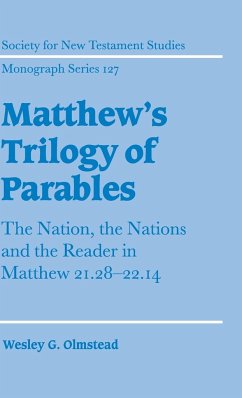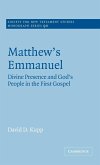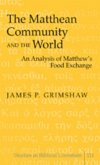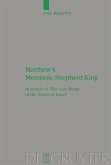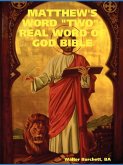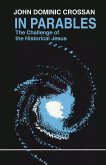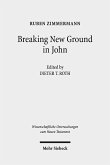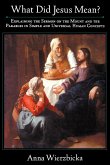Short description/annotation
The parables of the Two Sons, the Tenants and the Wedding Feast in Matthew's Gospel.
Main description
Wesley Olmstead examines the parables of the Two Sons, the Tenants and the Wedding Feast against the backdrop of the wider Matthean narrative. He explores Matthew's characterisation of the Jewish leaders, the people and the nations, and assesses the respective roles of Israel and the nations in the plot of Matthew's Gospel. Against the current of contemporary Matthean scholarship, Olmstead argues both that the judgement this trilogy announces falls upon Israel (and not only her leaders) and that these parables point to the future inclusion of the nations in the nation that God had promised to raise up from Abraham. Bringing both literary-critical and redaction-critical tools to bear on the texts at hand, Olmstead not only elucidates the intended meanings of this parabolic trilogy but also attempts to determine the responses they elicited from their first readers. Transcending Matthean scholarship, this book has implications for all Gospel studies.
Table of contents:
Part I. Prolegomena: 1. Introduction: Of authors, readers, and approaches to the parables; 2. Matthew's trilogy of parables 21.28-22.14; Part II. The Trilogy in Narrative-Critical Perspective: 3. Jesus' encounter with Israel: the nation, its leaders, and their people; 4. Jesus and the nations: characterisation, plot, and the reception of Matthew 21.28-22.14; 5. A narrative-critical reading of the trilogy; Part III. The Trilogy in Redaction-Critical Perspective; 6. The trilogy in redaction-critical perspective; 7. Conclusions; Appendix: The text of the parable of the two sons; Bibliography; Indices.
Hinweis: Dieser Artikel kann nur an eine deutsche Lieferadresse ausgeliefert werden.
The parables of the Two Sons, the Tenants and the Wedding Feast in Matthew's Gospel.
Main description
Wesley Olmstead examines the parables of the Two Sons, the Tenants and the Wedding Feast against the backdrop of the wider Matthean narrative. He explores Matthew's characterisation of the Jewish leaders, the people and the nations, and assesses the respective roles of Israel and the nations in the plot of Matthew's Gospel. Against the current of contemporary Matthean scholarship, Olmstead argues both that the judgement this trilogy announces falls upon Israel (and not only her leaders) and that these parables point to the future inclusion of the nations in the nation that God had promised to raise up from Abraham. Bringing both literary-critical and redaction-critical tools to bear on the texts at hand, Olmstead not only elucidates the intended meanings of this parabolic trilogy but also attempts to determine the responses they elicited from their first readers. Transcending Matthean scholarship, this book has implications for all Gospel studies.
Table of contents:
Part I. Prolegomena: 1. Introduction: Of authors, readers, and approaches to the parables; 2. Matthew's trilogy of parables 21.28-22.14; Part II. The Trilogy in Narrative-Critical Perspective: 3. Jesus' encounter with Israel: the nation, its leaders, and their people; 4. Jesus and the nations: characterisation, plot, and the reception of Matthew 21.28-22.14; 5. A narrative-critical reading of the trilogy; Part III. The Trilogy in Redaction-Critical Perspective; 6. The trilogy in redaction-critical perspective; 7. Conclusions; Appendix: The text of the parable of the two sons; Bibliography; Indices.
Hinweis: Dieser Artikel kann nur an eine deutsche Lieferadresse ausgeliefert werden.

